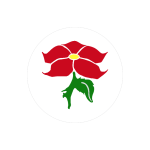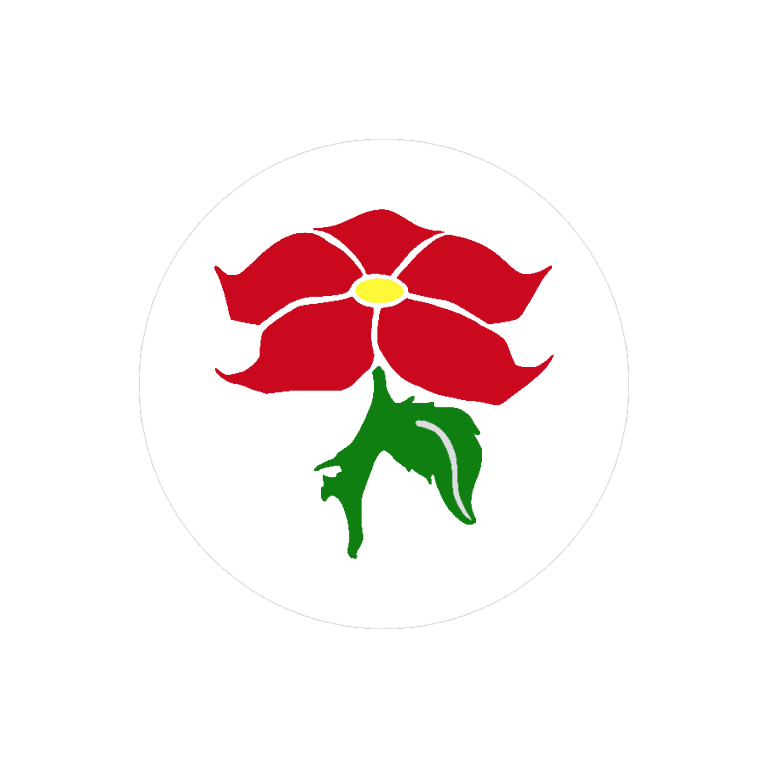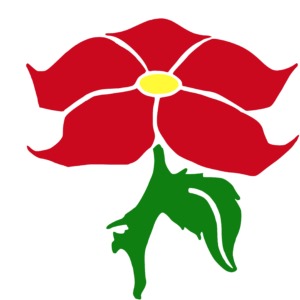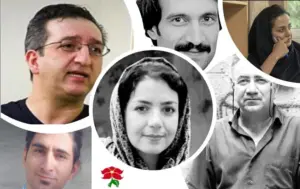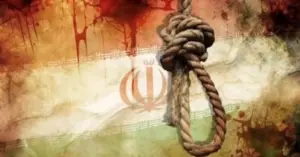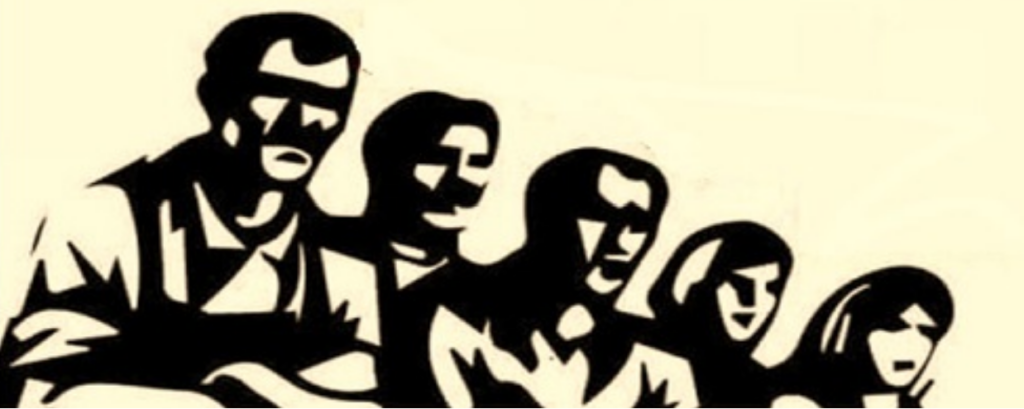Iranian People's Fadaian Organization (Majority)
Years of repression
Although it was clear that the ruling fundamentalists could not tolerate the activities of and the existence of our organization. The Fadaian Organization did not put itself in direct conflict with the government; While criticizing the policy of repression and undemocratic actions of the security forces, it participated in defence of the country against Iraq aggression. Nevertheless, the established government’s policy in the first four years after the revolution was to tolerate the organization along with exerting pressure against it. There were always hundreds of Fadai members and activists imprisoned and a few faced capital punishment.
Along with the government’s attack on Iran’s Tudeh Party in the winter of 1982, which was carried out with the support and conspiracies of the British government, the persecution of our organization and the pursuit and monitoring of the members of the central committee and its effective cadres became unprecedentedly intense and the space for open and semi-public activities extremely narrowed. The Islamic Republic launched an attack to arrest the members of the Central Committee in the spring of 1983, but it was unsuccessful. The central cadres of the organization were transferred abroad. The Fadaian organization was agile in adapting to the aggressive conditions of the time and the number of arrests and its vulnerability was greatly reduced. A number of those arrested were among the 155 members of the organization who were killed by the death squad while in custody without any legal and due processes in the well-documented widespread massacre of political prisoners in the summer and fall of 1988
Years of transformations
The bitter consequence of the Iranian revolution and the collapse of the Socialist Block led the organization to review its theoretical, political and organizational foundations. After several plenums of the central committee and meetings of the organization abroad, the first congress of the organization was held from 4 to 14th of August 1990.
This congress was focused on reviewing the past performance of the organization and it’s leadership, re-examining the programmatic identity, orientation, and political positions. Meanwhile Congress aimed at expanding internal democracy and changing the organizational structure in order to provide the effective and maximum potentials for involvement of the members in organizational and political decisions making.
The re-examination of the programmatic identity and orientation also continued until it led to the adoption of a program in the 13th Congress in April 2013. In this program, in the first part under the title “Vision, Basic Values and the Organization’s View”, it is stated that the organization “struggles to prepare the conditions for a gradual transition from capitalism to democratic socialism” and is “against the ideological state”.
Convergences and Resurgence of the organization’s activism
Pursuant to the forced exile abroad, after re-orienting itself, the organization set foot on the path of dialogues, cooperations and alliances with the political parties and organizations in the opposition to the Islamic Republic of Iran. A few years back, the organization focused on the rapprochement and convergence of left political forces. The 15th Congress, feeling that approach, approved the “establishment of a joint political organization with a party theme” with the right for members to simultaneously be a joint member of the Fadaian Organization and the new party. Parties to the negotiation accepted the resolution and the founding process began, the Left Party of Iran was formed. Following the establishment of the Left Party of Iran the Iranian People’s Fadaian Organization(Majority) in its 18th and 19th congresses, approved the complete resurgence of the organization’s activism. Since then, our organization has rebuilt its independent structure. The Kar magazine has been active in the cyberspace since March 2023 at the address www.kar-online.com, and also published daily on Facebook, Instagram, YouTube, Telegram and other social networks.
In the service of the people and the country!
In order to realize the interests of workers and toilers!
Excerpts from a Resolution of the 19th Congress of Iranian People’s Fadaian Organization (Majority)
Iran People’s Fadaian Organization (Majority) is a peoples’ organization, patriotic and a believer in democratic-socialism. Organization fights for the ideals of independence, freedom, social justice and to secure the interests of the people and the country(national interests). Adhering to its adopted program, the organization struggles for the realization of a non-religious (secular) civilian republic committed to the principles of human rights and democratic values based on the free will and votes of the people of our country, and is firmly against unelected, religious, hereditary and ideological state. The organization’s political strategy to achieve this goal is a continuous struggle to transform the political structure by relying on peaceful activism and emerging movements in the country aligned with civil society pressure. …It strives to eliminate all social discriminations, with regards to class, political, gender, social, economic, religious and national-ethnic attributes;…to ensure the rights and interests of workers, farmers, toilers and other deprived sections of the society.
In its political struggle and in opposition to the Islamic Republic, the organization relies only on people of Iran, confronting any interference of foreign powers in Iran’s political affairs. We believe that any dialogue and collaboration with international institutions and representatives of governments, parties and foreign forces shall be open and transparent.
.
Iranian People’s Fadaian Organization (Majority), is a democratic-socialist political organization defending peace, freedom, democracy, human rights, social justice, and equality. The organization struggles for equal rights for men and women, diversity of lifestyles, democratic distribution of power, wealth, opportunities and information in solidarity with oppressed classes; It emphasizes on providing harmony and balance between freedom, equality, democracy, development and preservation of the environment; It fights to provide living conditions suitable for human dignity for all citizens of Iran and to provide the conditions for a gradual transition from capitalism to democratic socialism; IPFOM fights against class, gender, national-ethnic, racial and religious discrimination.
A look at the history:
The Iranian People’s Fadaian Organization of Iran (Majority) is an organization that has changed and evolved from the People’s Fedayee Guerrilla Organization, which announced its existence in April 1971.
After the 1953 coup d’état against the democratically elected national government of Dr. Mossadegh, the policy of repression was implemented by the Shah Mohammad Reza Pahlavi’s government against the left and democratic forces. The dictatorship continued by targeting the two main political organizations of that time in the opposition to the royal government, the Tudeh Party of Iran and the National Front of Iran. By severely limiting the scope of action of the members of the National Front of Iran and the Tudeh Party of Iran and prosecuting their members and affiliated forces Pahlavi Regime tried to eliminate any organized legal activity of political opponents.
In such a situation, in the early 1960s, a new wave of opposition against the dictatorial government emerged. The center of political activity was moved to intellectual circles and especially among college and high school students, who were inclined towards the liberating and revolutionary movements of the 1950s and 1960s, especially in Cuba, Vietnam and Palestine.
The first step in the organization of the Fadaian movement was taken in 1963 by the Jazani-Zarifi group, known as Group One. The simultaneous formation of the second group, the Ahmadzadeh-Pouyan-Miftahi group in the mid-1960s, was additional step in the armed struggle direction. The common belief in the fight against imperialist domination and internal tyranny, as well as the struggle against the exploitation of workers, laborers and other toilers, in connection with the similar global struggles brought these groups together.
The armed struggle started on February 8th,۱۹۷۱ with the attack of the first group and with the participation of a member of the second group to the gendarmerie post in Siahkal located in the forests of northern Iran. Although 2 months later, the Iran People’s Fedaii Guerrilla Organization was formed in April 1971 from the merger of the two groups, the Siahkal uprising was recorded in history as the inauguration of the Fadaian movement. The Fadaian persistently continued the struggle against the royal dictatorship until the victory of the revolution on 11th of February 1979. Along the way they were subjected to the most severe attacks by the security forces of the Shah, famously known as SAVAK. During this period, 213 Fadaii lost their lives. On April 18th, ۱۹۷۵, SAVAK criminally assassinated Bijan Jazni with 6 other founders of the organization and 2 prisoners from the Mujahedin khalgh of Iran Organization(MKO) on the hills of the notorious Evin prison, eight years after their initial arrest, while in the regime’s custody. However, the heaviest blow to the organization was the death of the legendary commander of the organization Hamid Ashraf and nine other Fadaian leaders and members in a lengthy battle with SAVAK on June 29th, ۱۹۷۶, in Mehrabad district in Tehran. Despite all these casualties Fadaian managed to maintain their organization and actively participated in the process of the 1979 revolution.
The Iranian Revolution of 11 February 1979 and the early years after
People’s Fedaian played an effective and active role during the Iranian revolution, within which 12 Fadais were killed, 7 of them on the 10th and 11th of February 1979-the final days of the royal regime collapse. During and after the revolution, many people that were against the theocracy supported the Fadaian movement. Following the victory of the revolution, public offices of the People’s Fedaian Guerrilla Organization of Iran were established in most cities of the country. These offices later became the gathering center of leftist youth. It can be said that during the revolution and for a long time after, the Fadaiian organization was the most popular left-wing political movement in Iran and had an impressive popular and massive support.
During the organization’s extensive activities in the sphere after the revolution, a great deal of internal discussions among the Fedaian members and supporters took place. Methods of struggle and policies dealing with the government were among the most important issues discussed. A large majority within the Organization were critical of the viability of the armed struggle. They were leaning towards a policy of peaceful co-operation and critique with the newly established government while masses instinctively followed the religious leaders.
Consequently, on May 1st, ۱۹۸۱, at the biggest demonstration in its history in front of one hundred thousands of supporters in the Azadi (Freedom) square in Tehran, the Organization announced that it was no longer a guerrilla movement. Instead, it now was a “political organization of Iranian working class” and the current name of Iranian People’s Fadaian Organization(Majority) or “Sazeman Fadaian Khalq Iran(aksariyat)” was adopted.
With the victory of the revolution and much earlier, we organized tens of thousands of enthusiastic supporters for work to fulfill the commitment to the workers, toilers and freedom seekers. “Kaar” (labor) magazine, the official organ of the organization, started publishing in March 1979 and its circulation quickly reached 100,000 and later up to 300,000 per week. In four years, the number of paid members of the organization increased to 20,000 people. One third of them were women, one fifth were workers and three fifths were students. The organization had organized more than 50,000 people, helping the trade unions and mobilizing them around the interests of the working class.
.

